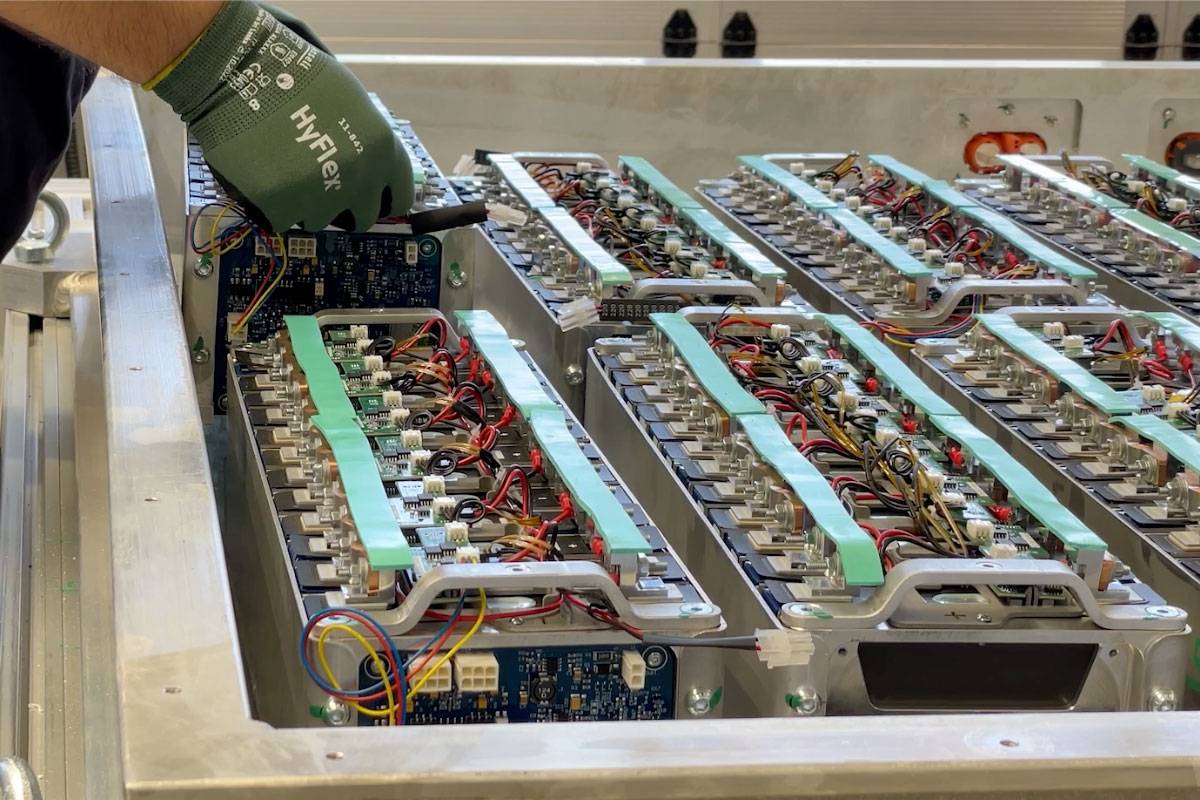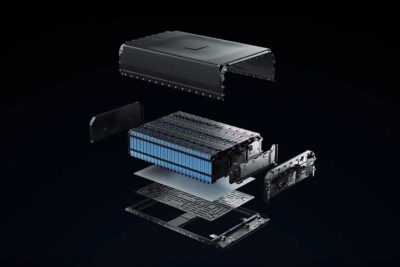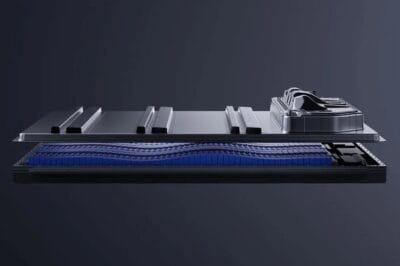EU project develops new EV battery concept
According to the announcement, the research team focused on making the battery components easy to assemble and disassemble, which directly improves repair efficiency, reuse in other applications and recyclability. To achieve this, the battery packs developed contain up to 60 per cent recycled aluminium, which also saves up to 777 kg of CO2 emissions per pack, and the packs rely on modularity to extend the life of the battery and its components. The cells are designed to integrate advanced materials’ recovery strategies, which allow for the recovery of high-purity graphite, lithium, nickel, manganese, and cobalt from the end-of-life cells.
Next to the improved production methods, the research project also introduced innovations for ultra-fast charging with a new cooling system design “that ensures uniform heat removal from the cells and busbars, combined with optimization algorithms for the charging process.” A switchable Junction Box also allows for a more flexible battery architecture, which can seamlessly transition between 400 and 800 volts.
“The focus on circularity creates a pathway to more sustainable electric vehicle technology. At the same time, by optimising battery performance, we address the main hurdles that hinder electric vehicles’ acceptance and adoption, such as limited range and lengthy charging times, enabling longer trips,” explained MARBEL Project Coordinator Eduard Piqueras, European Program Manager at Eurecat.
Violeta Vargas, researcher in Eurecat’s Waste, Energy, and Environmental Impact Unit, further added: “By integrating eco-design principles such as modularity, second-life applications, and materials with a high percentage of recycled content, MARBEL has extended battery usage while maintaining material value, effectively reducing waste and advancing both sustainability and economic viability.”
The project also developed its own battery management system, which uses busbars for power connections, which can be easily assembled and disassembled with standard screwed fasteners, thus simplifying the assembly process, while making them durable. An iSCM, or intelligent Smart Cell Manager, was developed for each battery cell, allowing for individual local monitoring and direct communication with the BMS via a Bluetooth connection. This also allows for further simplification of the battery design: “For instance, in a 16-cell battery pack, wiring can be reduced from more than 20 meters to just 80 centimetres, lowering material costs, weight, and assembly complexity, while enhancing overall efficiency.”
Partners in the project include 16 partners across eight countries, with six universities and research centres, including the Catalonia Institute for Energy Research (IREC), SINTEF, ICCS at the National Technical University of Athens, Technische Hochschule Ingolstadt, and Fraunhofer IWU, one automotive engineering company (Applus IDIADA), two SMEs (Powertech Systems and OTC Engineering), one OEM (Stellantis – CRF), and five component manufacturers (FICOSA, AVL Thermal HVAC, AVL Italia, ASAS, Agrati and SK Tes).





0 Comments